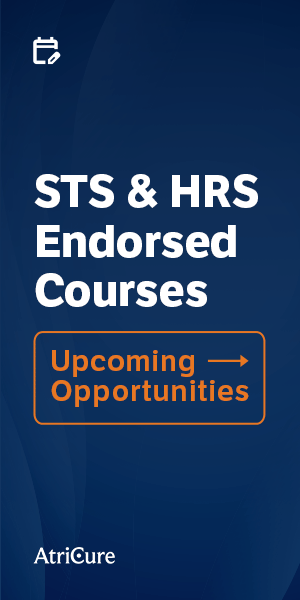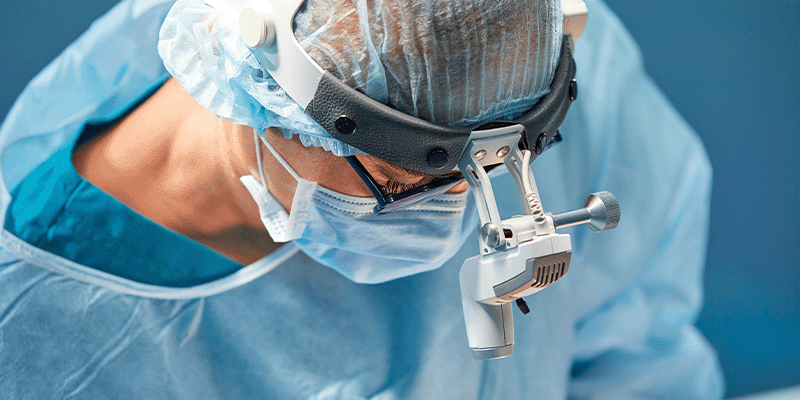Society Guidelines–Directed Care for Afib

Closing the Gap Between Mounting Evidence and Practice
It’s extremely rare for Afib to be addressed with any intervention following an open cardiac operation, making the time of valve or bypass surgery a golden opportunity to treat Afib.
But it’s still common for Afib to be ignored or untreated in most patients already undergoing surgery—nearly 80% of the time.1-2
“[If surgeons are] reluctant to offer this treatment during cardiac surgery... patients may be missing a unique opportunity to have their AF treated at the time of their cardiac surgery.”
– Mistirian, et al.3
This is despite the fact that both the Society of Thoracic Surgeons (STS) and the Heart Rhythm Society (HRS) now classify surgical ablation for Afib during cardiac surgery as a Class I recommendation—indicating strong evidence of benefit and a consensus that the procedure should be performed in most cases.
The disconnect between mounting evidence and practice underscores the need for greater awareness and adoption of guideline-directed care.
However, a significant and positive shift has taken place in the guidance, reflecting a growing body of high-quality evidence demonstrating that concomitant Afib treatment improves long-term outcomes, including survival, stroke reduction and quality of life. What’s that looked like?
The Evidence Behind the Guidelines
Recent updates to the 2023 ACC/AHA/ACCP/HRS guidelines and the STS 2023 Clinical Practice Guidelines for the Surgical Treatment of Afib are grounded in several pivotal studies and meta-analyses.
- The CONVERGE Trial: This randomized controlled trial compared hybrid convergent ablation (epicardial and endocardial) to catheter ablation alone in patients with persistent and long-standing persistent Afib. The results showed significantly higher freedom from atrial arrhythmias in the hybrid group, supporting its inclusion as a Class II recommendation for Advanced Afib.
- CEASE-AF 3-Year Data: This long-term follow-up study demonstrated the durability of hybrid ablation in patients with Advanced Afib, showing sustained rhythm control and reduced symptom burden.
- Meta-analyses and registry data: Multiple analyses have shown that surgical ablation during mitral valve, aortic valve, or CABG procedures reduces late mortality and thromboembolic events without increasing perioperative risk.
- Left Atrial Appendage Exclusion (LAAE): The 2023 guidelines also elevate LAAE to a Class I recommendation, recognizing its role in stroke prevention when performed during cardiac surgery.
Clinical Impact: Why This Matters
Even in sicker patients, like those with an enlarged left atria and reduced ejection fraction, restoring normal sinus rhythm can improve their quality of life after surgery and help them return to a normal life expectancy curve.4
In these patients, Afib can significantly impair cardiac output and increase the risk of heart failure, stroke, and death. Concomitant surgical ablation offers a unique opportunity to restore sinus rhythm and realize the improvement to long-term outcomes—without requiring a separate procedure.
From Recommendation to Routine Practice
The updated guidelines are not just academic—they’re a call to action. They reflect a consensus among leading cardiovascular societies that Afib is a progressive, high-risk condition that warrants proactive treatment. With modern tools and techniques, surgical ablation can be performed safely and efficiently, even in complex cases.
As the evidence base continues to grow, the imperative is clear: treat Afib when the chest is open. Doing so aligns with best practices, improves patient outcomes, and fulfills the promise of comprehensive cardiac care.



